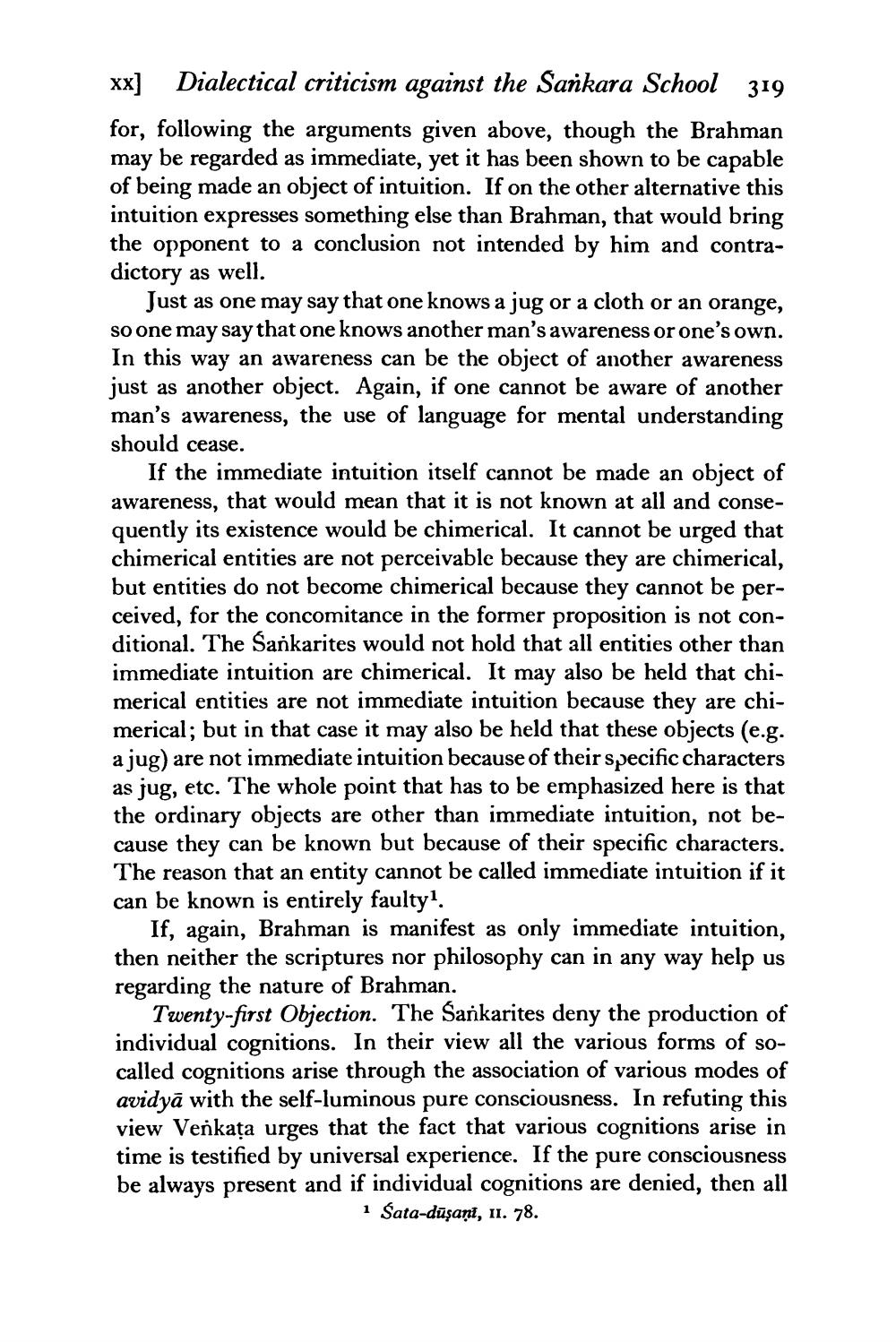________________
xx]
Dialectical criticism against the Sankara School 319
for, following the arguments given above, though the Brahman may be regarded as immediate, yet it has been shown to be capable of being made an object of intuition. If on the other alternative this intuition expresses something else than Brahman, that would bring the opponent to a conclusion not intended by him and contradictory as well.
Just as one may say that one knows a jug or a cloth or an orange, so one may say that one knows another man's awareness or one's own. In this way an awareness can be the object of another awareness just as another object. Again, if one cannot be aware of another man's awareness, the use of language for mental understanding should cease.
If the immediate intuition itself cannot be made an object of awareness, that would mean that it is not known at all and consequently its existence would be chimerical. It cannot be urged that chimerical entities are not perceivable because they are chimerical, but entities do not become chimerical because they cannot be perceived, for the concomitance in the former proposition is not conditional. The Sankarites would not hold that all entities other than immediate intuition are chimerical. It may also be held that chimerical entities are not immediate intuition because they are chimerical; but in that case it may also be held that these objects (e.g. a jug) are not immediate intuition because of their specific characters as jug, etc. The whole point that has to be emphasized here is that the ordinary objects are other than immediate intuition, not because they can be known but because of their specific characters. The reason that an entity cannot be called immediate intuition if it can be known is entirely faulty1.
If, again, Brahman is manifest as only immediate intuition, then neither the scriptures nor philosophy can in any way help us regarding the nature of Brahman.
Twenty-first Objection. The Sankarites deny the production of individual cognitions. In their view all the various forms of socalled cognitions arise through the association of various modes of avidya with the self-luminous pure consciousness. In refuting this view Venkata urges that the fact that various cognitions arise in time is testified by universal experience. If the pure consciousness be always present and if individual cognitions are denied, then all 1 Sata-dūşani, 11. 78.




